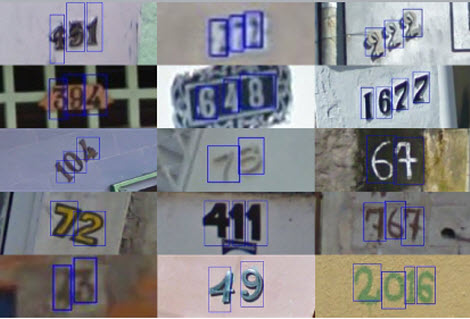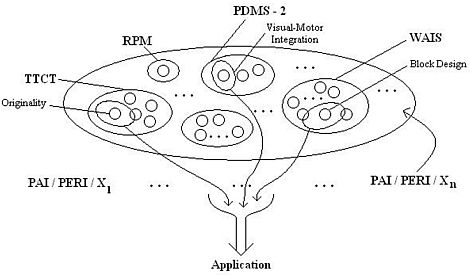
NEWS: Chatbots.org survey on 3000 US and UK consumers shows it is time for chatbot integration in customer service!read more..
Cognition News
Robots may see, speak and feel. Now it’s time to play robotic football!
 | by Karolina Kuligowska on Aug 15, 2011 in Agent's Processing, Cognition, Research News |
Summary: Robots trained by researchers from University of Edinburgh participate in Robot Soccer World Cup
Having acquired skills of falling in synthetic love, making long-term cyber relationships, and playing pool with two hands, it’s time to take care of the artificial stamina! Recently, robots became active supporters of football and they began to play this most famous game in the world.
Read more about: Robots may see, speak and feel. Now it’s time to play robotic football!
The unintended Captcha Hack Algorithm of Google
 | by Erwin van Lun on Jan 2, 2012 in Agent's Processing, Cognition, Research News |
Summary: Google is working on algoritms to read house number from Google Street View images,unintendently cracking Captcha

In a paper called Reading Digits in Natural Images
with Unsupervised Feature Learning researchers from Google and Stanford University reveal a new method of identifying house numbers in Google Street View.
It’s just another attempt to add a bit of AI to Googles ability to understand the world.
As a result however, this algorithm is obviously very useful for Captcha hackers as well, as I’ve announced many times before. Captchas are those annoying characters you have to re-type when you leave a comment on a forum, to get access to certain information or when you register for a website, The purpose of Captchas are to separate computers from real human beings, assuming that humans are better in complex character recogntion than computers. This will soon be something of the past.
The result: computers will be able to create new accounts, register everywhere, spam everywhere. It will also retrieve password, access email boxes and send emails on behalf of real humans. It’s an unstoppable development. The only way to stop this: collaborate worldwide and define a new internet which is suitable for consumer usage. Also, we should get rid of the idea that we should protect privacy on the internet allowing people to stuff around anonymously without the chance of getting caught, and that everything should be available for free. Nothing is for free.
This will be part of a new concept for the future world, which I will refer to as
The Utopia Manifesto
Soon more!
Read more about: The unintended Captcha Hack Algorithm of Google
Dangerously self-aware chatbots should be kept in virtual prison!
 | by Karolina Kuligowska on Apr 23, 2012 in Agent's perception of humans, Facial coding, Agent's Processing, Action tendency, Learning, Cognition, Research News |
Summary: Virtual Prison for Hazardous Intelligent AI entities
Dr. Roman V. Yampolskiy from University of Louisville says that we should be aware of dangerously self-aware chatbots and he suggests to keep dangerous AI entities in virtual prison for avoiding social-engineering attacks. According to him, we should improve cybersecurity, because one day disobeying virtual agents could threaten humanity’s existence.
Read more about: Dangerously self-aware chatbots should be kept in virtual prison!
Measure your chat bot IQ!
 | by Karolina Kuligowska on May 18, 2012 in Agent's Processing, Creativity, Learning, Cognition, Research News |
Summary: Psychometric AI approach to measure computational intelligence

Psychologists nowadays are able to measure human intelligence by using various IQ tests. Nevertheless, they still don’t agree on one common definition of human intelligence. What would happen if we apply a similar approach to measuring intelligence of artificial entities, skipping never-ending discussions on AI definition? According to professor Selmer Bringsjord and Bettina Schimanski an answer is contained in Psychometric AI (PAI).
Will chatbots think, learn and act by themselves soon?
 | by Karolina Kuligowska on Apr 2, 2012 in Agent's Processing, Learning, Cognition, Research News |
Summary: Chatbots can become autonomous virtual creatures by integrating advanced neural network methods
The robot presented on the video can chat with other humanoid robots via the Internet. Moreover, when faced with a new situation, the robot can search the World Wide Web and gather appropriate information in order to fill an identified knowledge gap. Afterwards, it incorporates new knowledge under its own power, and is ready to execute diverse new tasks.
Present chatbots have rather limited reasoning, inflexible behavior and they lack learning abilities. They perform entrusted tasks in strict accordance with programmed procedures. What if chatbot developers equipped new chatbots with an advanced online-learning mechanism applied recently in intelligent humanoid robots?
Read more about: Will chatbots think, learn and act by themselves soon?
Conversational agents experience self-awareness
 | by Karolina Kuligowska on Jul 22, 2011 in Agent identity, Cultural awareness, Agent's Processing, Cognition, State of the Art, Research News |
Summary: Awareness ability of 3D interactive conversational agents
Virtual agents’ reasoning and actions are tightly connected with their awareness ability helping to relate to the environment during a conversation. Researchers invented the combination of virtual reality and artificial intelligence techniques to simulate living conversational agents being aware of themselves, the virtual world around them, and other virtual beings existing in that environment.
Read more about: Conversational agents experience self-awareness
Need a buddy to play pool? Two-handed robot will do!
 | by Karolina Kuligowska on Jun 27, 2011 in Agent's Processing, Cognition, Research News |
Summary: Robot participating in a pool play tournament is nothing strange nowadays. What about conversational agents?
During 2011 IEEE International Conference on Robotics and Automation researchers from Technical University of Munich presented a dual-armed robot capable of playing pool on a normal sized pool table.
Read more about: Need a buddy to play pool? Two-handed robot will do!
